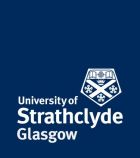Analysis
Analysis is the process of breaking a complex topic or substance into smaller parts in order to gain a better understanding of it. The technique has been applied in the study of mathematics and logic since before Aristotle (384–322 B.C.), though analysis as a formal concept is a relatively recent development.
Business
Business is the activity of making one's living or making money by producing or buying and selling goods or services. Simply put, it is "any activity or enterprise entered into for profit. It does not mean it is a company, a corporation, partnership, or have any such formal organization, but it can range from a street peddler to General Motors." The term is also often used colloquially (but not by lawyers or public officials) to refer to a company, but this article will not deal with that sense of the word.
Business Analysis
Business analysis is a research discipline of identifying business needs and determining solutions to business problems. Solutions often include a software-systems development component, but may also consist of process improvement, organizational change or strategic planning and policy development. The person who carries out this task is called a business analyst or BA.
Mathematics
Mathematics (from Greek μάθημα máthēma, "knowledge, study, learning") is the study of such topics as quantity, structure, space, and change. It has no generally accepted definition.
Statistics
Statistics is a branch of mathematics dealing with the collection, analysis, interpretation, presentation, and organization of data. In applying statistics to, for example, a scientific, industrial, or social problem, it is conventional to begin with a statistical population or a statistical model process to be studied. Populations can be diverse topics such as "all people living in a country" or "every atom composing a crystal". Statistics deals with all aspects of data including the planning of data collection in terms of the design of surveys and experiments. See glossary of probability and statistics.
Statistics
To understand God's thoughts we must study statistics, for these are the measure of his purpose.
Florence Nightingale, quoted in Karl Pearson, Life of Francis Galton, vol.II, ch.xiii, sect.i
Business
Somewhere in the past. organizations were quite simple, and 'doing business' consisted of buying raw material from suppliers, converting into products, and selling it to customers... For the most part owner-entrepreneurs founded such simple business and worked along with members of their families. The family-dominated business still accounts for a large portion of the business start today.
R. Edward Freeman (2007) Strategic Management: A Stakeholder Approach p. 5
Analysis
A great part of the progress of formal thought... has been due to the invention of what we may call stenophrenic, or short-mind, symbols. These... disengage the mind from the consideration of ponderous and circuitous mechanical operations and economise its energies for the performance of new and unaccomplished tasks of thought. And the advancement of those sciences has been most notable which have made the most extensive use of these... Here mathematics and chemistry stand pre-eminent. The ancient Greeks... even admitting that their powers were more visualistic than analytic, were yet so impeded by their lack of short-mind symbols as to have made scarcely any progress whatever in analysis. Their arithmetic was a species of geometry. They did not possess the sign for zero, and also did not make use of position as an indicator of value. ...The historical calculations of Archimedes, his approximation to the value of π, etc., owing to this lack of appropriate... symbols, entailed enormous and incredible labors, which, if they had been avoided, would... have led to [even] great[er] discoveries.
Thomas J. McCormack, "Joseph Louis Lagrange. Biographical Sketch" (1898) in his translation of Joseph Louis Lagrange, Lectures on Elementary Mathematics (1898); 2nd edition (1901) p. vii.

